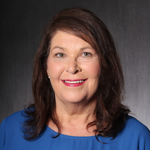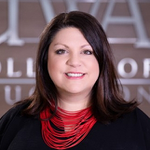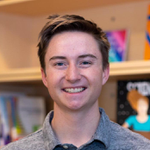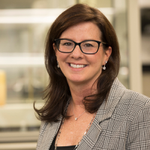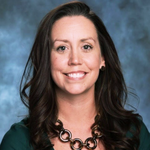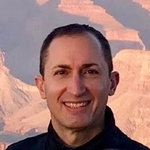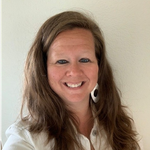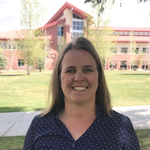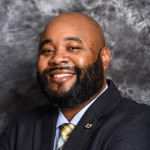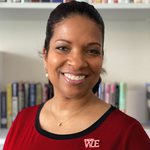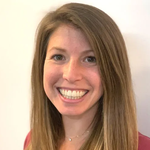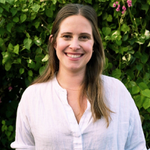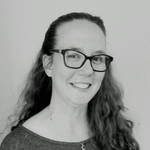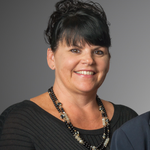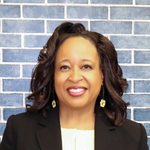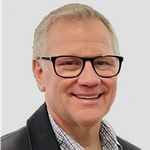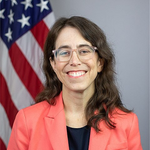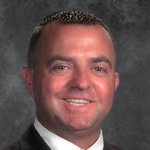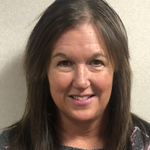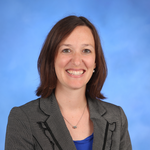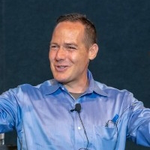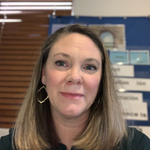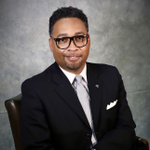Agenda
- Booth Setup for Education Career Expo
- Education Career Expo
Kimberly RadostitsAn opportunity for educator candidates (and those exploring education careers) to explore options and connect with hiring professionals from school systems in Illinois and beyond. Kimberly Radostits, 2022 Illinois Teacher of the Year (and National Teacher of the Year Finalist), will address those gathered and then chat with attendees in a "meet and greet" format.
- National Working Group on Teacher Retention Pre-Conference Gathering
Theresa West - Conference Kick-Off
Join us in the Empire Room
- Opening Keynote: Reframing the Narrative on the Teaching Profession
Chad AldemanSome of the current popular narratives about the teaching profession are not accurate and can push policymakers to ignore real problems and their potential solutions, while also dissuading talented young people from becoming teachers. In this session, Chad Aldeman will walk through the latest objective data on the supply of new teachers, teacher pay, and teacher turnover. Contrary to media reports, the number of young people training to become teachers has started to rise. Americans consistently under-estimate how much teachers in their communities earn, and, while turnover rates have risen, schools today employ more teachers than ever.
- Break with Sponsor & Exhibitors
- Concurrent Breakout Sessions
- Break with Sponsor & Exhibitors
- "Take Five" Activity
- Grand Welcome Reception & Buffet
Street Jackson Band
- Breakfast & Announcements
- Concurrent Breakout Sessions
- Concurrent Breakout Sessions
- AAEE Business Luncheon & Awards Presentation
- Future Educator Panel
- Concurrent Breakout Sessions
- Break with Sponsor & Exhibitors
- AAEE Fun & Games Competition
- "Night on the Town"
RSVP for the event hosted by Proximity Learning at Exchequer Restaurant & Pub (see email invitation to registrants), or create your own group outing to a nearby destination.
- Breakfast & Announcements (including Silent Auction & Raffle Winners)
- Concurrent Breakout Sessions
- Closing Keynote: Looking to the Future of Education
Dr. Lindsey JensenDr. Lindsey Jensen shares how she remains “obnoxiously optimistic” about the future of our profession through her work with Educators Rising Illinois and Aspiring Educators. She will address teacher recruitment challenges, as well as how to flip the conversation from “getting rid of ‘bad’ teachers” to supporting early career educators so that they can grow into the teachers they’re capable of becoming.
- Conference Closing
- GFO Intros & Questions of the Day
Limited to current members of the Get the Facts Out (GFO) initiative, if you would like to attend this or learn more please contact GFO Central at info@GettheFactsOut.org. GFO is supported by the National Science Foundation under Grant Nos. 1821710 & 1821462.
- GFO Research Updates (research findings from the past year)
Limited to current members of the Get the Facts Out (GFO) initiative, if you would like to attend this or learn more please contact GFO Central at info@GettheFactsOut.org. GFO is supported by the National Science Foundation under Grant Nos. 1821710 & 1821462.
- GFO Break • Starbucks Walk
Limited to current members of the Get the Facts Out (GFO) initiative, if you would like to attend this or learn more please contact GFO Central at info@GettheFactsOut.org. GFO is supported by the National Science Foundation under Grant Nos. 1821710 & 1821462.
- GFO Community and what if GFO 2.0 does not get funded
Limited to current members of the Get the Facts Out (GFO) initiative, if you would like to attend this or learn more please contact GFO Central at info@GettheFactsOut.org. GFO is supported by the National Science Foundation under Grant Nos. 1821710 & 1821462.
- GFO dinner outings in groups (not GFO funded)
Limited to current members of the Get the Facts Out (GFO) initiative, if you would like to attend this or learn more please contact GFO Central at info@GettheFactsOut.org. GFO is supported by the National Science Foundation under Grant Nos. 1821710 & 1821462.
- GFO Introductions (soft start)
Limited to current members of the Get the Facts Out (GFO) initiative, if you would like to attend this or learn more please contact GFO Central at info@GettheFactsOut.org. GFO is supported by the National Science Foundation under Grant Nos. 1821710 & 1821462.
- GFO Resource Updates (updates to the GFO resources over the past year and what is new)
Limited to current members of the Get the Facts Out (GFO) initiative, if you would like to attend this or learn more please contact GFO Central at info@GettheFactsOut.org. GFO is supported by the National Science Foundation under Grant Nos. 1821710 & 1821462.
- GFO Break • Chicago Cultural Center Tour and Coffee
Limited to current members of the Get the Facts Out (GFO) initiative, if you would like to attend this or learn more please contact GFO Central at info@GettheFactsOut.org. GFO is supported by the National Science Foundation under Grant Nos. 1821710 & 1821462.
- GFO Luncheon & Presentation (orientation to AAEE)
Limited to current members of the Get the Facts Out (GFO) initiative, if you would like to attend this or learn more please contact GFO Central at info@GettheFactsOut.org. GFO is supported by the National Science Foundation under Grant Nos. 1821710 & 1821462.
- GFO Reflection
Limited to current members of the Get the Facts Out (GFO) initiative, supported by the National Science Foundation under Grant Nos. 1821710 & 1821462.
- GFO Lunch
Limited to current members of the Get the Facts Out (GFO) initiative, supported by the National Science Foundation under Grant Nos. 1821710 & 1821462.
- Q and A with Chad Aldeman (keynote speaker)
This session will give attendees a chance to react, comment, and ask questions about Chad Aldeman's keynote. In addition, Chad will highlight new strategies school districts are using to attract and retain workers, including finding new sources of labor, creating different training and licensing pipelines, and offering innovative compensation packages. Audience members will also be encouraged to share what's working--or not--in their local communities.
- Student Voice Matters • How to Grow Your Own from Within
Milan Aranda•Jose Carrillo•Maya Moneze•Dr. Lisa RollinsNot sure how to start recruiting future educators? Hear directly from students who understand the exploration of education professions and recruitment of future educators begins in high school.
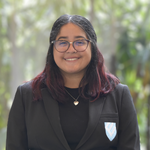
Milan Aranda
National Student President at PDK International/Educators Rising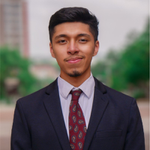
Jose Carrillo
Membership Development Associate at PDK International/Educators Rising
Maya Moneze
PDK International/Educators Rising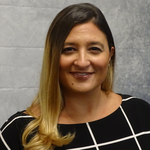
Dr. Lisa Rollins
National Director of Outreach and Engagement at PDK International/Educators Rising
- Building New Teacher Pipelines: Lessons Learned from Two Rural-Serving Universities
Dr. Boyce Williams•Susan Hester•Sara Reynolds•Rohit TandonFrostburg State University and the University of West Alabama recently launched teacher residency programs targeting rural districts in Maryland and Alabama, respectively. These programs both seek to create a new teacher pipeline and develop teacher leaders. In this session you will hear from panelists about how they created their teacher residency programs in partnership with rural district partners and their many lessons learned from the first three years of implementation. Panelists will discuss how they built their leadership teams, characteristics of strong residency programs, the types of support provided, and how they have prepared for and addressed uniquely rural issues.
- STEM Teacher Recruitment Resources – Customizable and Proven
Lucia "Lucy" Grande•Dawson Lang•Dr. Ellen YezierskiDid you know teacher’s rate their lives better than all occupation groups, trailing only physicians. At Get the Facts Out we focus on identifying data that helps us understand the teaching profession compared to other careers. We’ve developed a suite of resources that can be easily customized for your local efforts to get the facts out about teaching. These include presentations, posters, brochures, flyers, and “A Teachers Life by the Numbers” infographics. In this session we’ll share our latest resources and allow time for participants to discuss and brainstorm their local recruitment efforts. This work is supported by the National Science Foundation Grant #1821710 & 1821462.
- Networking Session: Removing Barriers to Recruiting Diverse Teachers
Jorge Fuller•Andrea Thomas-ReynoldsObjective: To make solution oriented connections that can be brought back to organizations that will be used to resolve common issues in education across the country.
How can one handle the financial hardships of its employees?
How do we turn the supportive staff into certified teachers?
How do we truly make true trauma informed decisions?
What are the top 1-2 issues you think your organization should focus on?- JF
Jorge Fuller
Recruitment and Retention Coordinator at Teachers Like Me 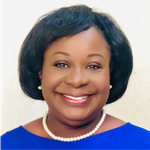
Andrea Thomas-Reynolds
Senior Vice President at Insight Education Group
- JF
- Mitigating Implicit Bias in Hiring Process
Michelle KempThis session will guide leaders, influencers, and hiring managers through the origin of implicit bias and how it informs the decision-making process, identify types of bias and implications on marginalized groups that limit diversity, and recognize team roles as accountability partners to redesign equitable hiring practices. Small and whole group discussions will focus on personal narratives to expand perspectives and unify voices through shared experiences.
- Studies of STEM Teacher Recruitment – What works and what doesn’t
Lucia "Lucy" Grande•Dawson Lang•Dr. Wendy AdamsIn this session Get the Facts Out will share some exciting research results showing that over 25% of students become more interested in teaching after just a single GFO presentation. Results of prior research will be shared that underlies the design of this presentation and how it is combating common misunderstandings about the profession. We’ll also share the results of focus group testing of taglines, photos, and other resources. Participants will leave with ideas on how to focus their recruitment efforts and do some simple testing of their own – if interested. This work is supported by the National Science Foundation Grant #1821710 & 1821462.
- The Educator Candidate's Journey
Micaela McDade•Karyn O'Neill•Robert "Bob" Phillips•Cristina StrunkLearn how Loudoun County Public Schools (LCPS) leverages best recruiting and hiring practices to divesify its workforce as the Employer of Choice. You will learn practical strategies to assist candidates and hiring managers when choosing the best prospective employee for the job. Over the last five years, LCPS has increased the proportion of licensed new hires who are teachers of color by nearly 90% and its proportion of overall licensed staff who are teachers of color by nearly 27%.
- Let’s Eat, Bon Appetit, Buon Appetito!
Jennifer KralWho’s at your table? What are you serving them? Will they stay long enough for dessert? Recruitment, development, and retention of teachers has bled into the role of a building principal. How does one implement recruiting strategies, while growing your current staff, and creating a culture that supports teacher retention? This session will help principals and hiring managers create a recipe for success while navigating strategic recruiting strategies, engaging and inspiring staff, and building a culture that decreases teacher turnover. Participants will collaborate with colleagues to gain new ideas around teacher recruitment; acquire strategies for retaining great teachers once hired; and walk away with an action plan to create a culture that both feeds and inspires educators who want to remain in the profession.
- Moving Mountains Through Pipeline Partnerships
Jennifer Kral•Sherri AndersonHaving a shared vision of building pipelines and sustainable pathways to licensure, a rural school district and an institute of higher education join forces to attract aspiring teachers into licensure programs and support veteran teachers as they seek growth and professional development. Come learn about the innovative thinking between these two partner programs who found solutions to attracting teacher candidates regardless of their level of coursework they had. Not only are they building pathways to licensure, several of these pathways have grant dollars and scholarships available now, making any of these pathways affordable for teacher candidates.
- Supporting and Retaining Educators of Color • Lessons from a Networked Improvement Community (NIC)
Pete Leida•Jeannie Aversa•Dr. Tommy NallsSchools and districts across the country recognize the critical importance of diversifying the educator workforce through recruitment efforts while also supporting the current educators of color in their districts. Over the past three years, district leaders across a networked improvement community have worked to build innovative systems in their districts while sharing those practices with one another. Join this incredible panel of leaders to hear their lessons learned and how this important work can impact recruitment and retention efforts in your district.
- Reaching The Educator Workforce • Branding and Marketing Your District
Pete Leida•Dr. Jennifer Alexander•Katie KremerSchool and district branding and marketing efforts are critical to successfully recruiting effective educators. However, due to many reasons, such as the current shift in workforce dynamics, outdated policies, budgets, and training, many districts are seeking to revise their recruiting practices and increase their focus on digital communication and marketing efforts. In this session, participants will learn promising practices and strategies that support school and district branding and marketing efforts by focusing on the 4 C’s of branding and marketing (Context, Content, Connect, Convert, from MasSolutions by Dave Mastovich). Through the application of the 4 C’s to branding and marketing in schools and districts, participants will identify their own strengths and areas of growth, and have the opportunity to connect with other leaders and educators in the room to share ideas, experiences, strategies, and lessons learned.
- Three Interview Protocols for Recruiting and Retaining Top Talent
Dr. Amy HolcombeSchool districts spend 85% of their budget on personnel so it’s critical that we engage in practices that leverage those dollars towards improved outcomes for students. Participants of this session will learn how to use the Standards Based Interview, Reverse Interview, and Stay Interview for recruiting and retaining top talent in their organizations. Standards Based Interviews enable hiring managers to identify candidates with the greatest potential for future success while Reverse Interviews allow candidates to ensure a great fit before accepting a position. Leaders use Stay Interviews to retain and grow their educators. Each protocol will be modeled and provided to participants.
- Leveraging Social-Emotional Coaching to Retain Educators
Nicola FleischerDo your current retention strategies feel expensive, inadequate, and unsustainable? Are you hearing report after report about educators feeling burned out, anxious, depressed, or simply disengaged? At edwell, we provide personalized support for educators, building their social-emotional competencies and promoting longevity in the profession. Come to this session to explore the core pillars of wellbeing that drive our work, how your own wellness as a district leader can influence your students’ mental health and wellness, and strategies you can implement to support your staff this year. We will start with an opportunity for leaders to go inward and identify their own wellbeing needs and key stressors. Then, we’ll build skills together in coping and co-regulating during times of stress. Finally, we’ll discuss how programs like edwell are strengthening staff capacity to respond to the current mental health crisis.
- Growing the Number of High School Physics Teachers
Dr. Jeff WilliamsSupported by a Physics Teacher Education Coalition (PhysTEC – NSF supported) Recruitment grant Bridgewater State University embarked on several initiatives over the last three years to recruit and train more future physics high school teachers. PhysTEC has demonstrated the great need for physics teachers; only 43% of physics teachers have a degree in physics compared with 70% for math and biology. As part of our work to recruit teachers we use Get the Facts Out (GFO) each semester in several introductory physics courses. GFO is supported by a NSF grant and provides resources for prospective science and mathematics teachers, faculty/staff who prepare those teachers, and the general public. In this session, we will discuss the different aspects of our program including early teaching experiences, our new concentration in physics teaching, our 1-credit physics content knowledge course, and how we integrate GFO materials throughout our department. We will share our results, such as an increase in the number of teachers graduating per year from 0.5 the three years prior to our grant to 2.0 in the last three years. We will discuss our sustainability plans to continue to move forward post-grant.
This work supported by PhysTEC – NSF Grant Nos. 080790, 010878, 083321, and 1707990
GFO – NSF Grant Nos. 1821710 & 1821462
- Recruitment and Retention with Intention: Cultivating Talent From Multiple Generations
Pete Leida•Jeannie AversaMultiple generations of educators (Baby Boomers, Gen X, Millennials, and Gen Z) are leading classrooms across the nation. Understanding and valuing the assets of different generations’ is important to productivity and building strong climates and cultures in schools. Recruitment and retention efforts must be crafted with intentionality and strong attention to the successful cultivation of talent from multiple generations. In this workshop session, participants will learn and discuss the recruitment and retention of educators across multiple generations through an engaging collaborative protocol. Participants will walk away with practical strategies on how to successfully recruit and support all generations simultaneously in the same school / district.
- University STEM Teacher Recruitment Efforts
Dr. Wendy Adams•Jillian DiBonaventura•Dr. Brian Lawler•Dr. Robin Smith•Dr. Jeff WilliamsIn this session five different STEM teacher preparation programs across the US will talk about their STEM teacher recruitment efforts including what they’ve found works well and where they struggle. Hear from Florida State University, Kennesaw State University, Bridgewater State University, Worcester Polytechnic and Colorado School of Mines. This work is supported by the National Science Foundation Grant #1821710 & 1821462.
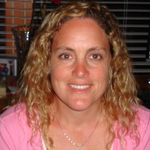
Dr. Wendy Adams
Director, Teach@Mines of Colorado School of Mines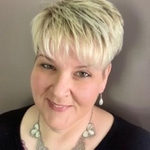
Jillian DiBonaventura
Director of Teacher Preparation at Worcester Polytechnic Institute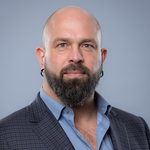
Dr. Brian Lawler
Director and Associate Professor, Center for STEM Education Research and Math Education of Kennesaw State University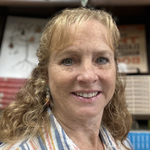
Dr. Robin Smith
Associate Director FSU-TEACH of Florida State University
Dr. Jeff Williams
Professor of Physics at Bridgewater State University
- Navigating the Shifting Winds of Teacher Recruitment
Kimberly Wood•Bonnie ToffoliOrange County Public Schools (OCPS) stays at the forefront of educator recruitment through innovative recruitment initiatives to help navigate the changes in the teacher candidate pool. Recruiting strategies include grow your own programs, partnerships with universities, consistent campus visibility with education and career centers as well as OCPS teacher events that assist in supporting the candidates through the hiring process. Through these strategies, OCPS creates and collaborates with partners to provide year-round engaging experiences that focus on making connections, building relationships and providing purposeful placements throughout the educational candidates journey. As we weather the shifting winds, OCPS focuses on changing the narrative to support both current and rising educator candidates.
- Retention as a Recruiting Strategy: Retaining Diverse Educators
Ann Hlabangana-ClayThe data shows that the strongest recruitment strategy to date is retention. It is the responsibility of all stakeholders for developing and sustaining a belonging culture in order to retain a diverse workforce. Proven strategies like establishing meaningful affinity spaces and leadership coaching contribute to a sustainable culture of belonging. A culture of belonging can draw in the qualified staff that you’re seeking to add to your school team and help you keep them.
- Teaching Across State Lines • Interstate Teacher Mobility Compact Update
Jimmy AdamsIn this session, the presenter will discuss what the Interstate Teacher Mobility Compact (ITMC) is and is not, talk about the current status of the ITMC, strategies used to successfully pass it into law, promotion efforts, potential roadblocks to avoid, and next steps.
- How Teaching Apprenticeships Create a Sustainable Pathway Recruitment, Retention and Support
Erin Mote•Maureen Tracey-MooneyTeaching apprenticeships offer many advantages for institutions of higher education, state agencies, and other programs that want to structure diverse pathways for educators into the profession. This session will overview the newly released National Guidelines Standards by the US Department of Labor to help participants explore if teaching apprenticeships and models are a way to solve their challenge and also generate a conversation around the advantages of teaching apprenticeships including reduced barriers to entry, increase diversity in the teaching workforce and improve teacher quality.
- Developing a Highly Effective Team
Chris Gearlds
- Implementing a Productive Interview System
Jana Anderson•Chris GearldsAs districts continue to face the challenges of filling teacher vacancies, the interview process becomes increasingly more important. Throughout this session, the presenters will share an interview tool system that will assist any educator and their respective district in creating a uniform, fair interview process. Presenters will share examples of interviews that were both effective and ineffective in gaining strong candidates and the attendees will be afforded the opportunity to share past experiences of interviewing and the successes and pitfalls that may have occurred. A large emphasis will be placed on the value of preparing for the interview and a step-by-step process to gather the most valuable information to make a productive decision on each interviewee.
- Cutting Through the Noise: Data on Teacher Retention & the Decisions that Keep Them
Michael McCarthy•Whitney Rosetti•Theresa WestThis session will present data from over 30,000 teachers in spring 2023, trends in teacher engagement, and research-based strategies to support & retain your staff. Attendees will hear from network leaders from Distinctive Schools who utilized principal coaching and engagement data across their schools to understand teacher needs and provide support throughout the school year.
- Get the Facts Out: Strategies to Recruit High School Students into the Teaching Profession
Dr. Sarah Dyess•Dr. Jean LeeWe share a student-facing Get the Facts Out presentation and lessons learned from presenting to high school students. Participants reflect on best practices to recruit high school students into the teaching profession, and discuss their own recruitment efforts with others. Special attention will be placed on how GFO materials were adapted for the audience and the types of engagement strategies that were used during recruitment events.
- Using Technology to Understand the Teacher Labor Market
Allie Bogus•Dr. Dan GoldhaberIn response to the lack of national data surrounding teacher vacancies, we have started to investigate technology-driven ways to fill in the gap. If selected, this session would focus on our approach to using active job postings to get a more accurate, dynamic pulse check on teacher vacancies around the country and how we can apply broad data on teacher supply/demand for a variety of policy-driven and practical uses.
- ASU Teaching Fellows: A paraeducator pathway to certification and degree
Dr. April Holton•Dr. Carlyn LudlowFaculty from Arizona State University will share a newly developed program designed to provide paraeducators a pathway into teaching while continuing to work in Arizona public schools. The program is a partnership with public school districts to provide one solution to the unfilled positions in elementary and special education classrooms. ASU Teaching Fellows is an accelerated program with qualified faculty that uses a unique “supercourse” structure matched with job-embedded experiences to provide a manageable and supportive learning experience. In addition, student teaching is embedded within the program so that paraeducators do not need to leave their job to fulfill this requirement. At the completion of the program, fellows will be prepared to accept full-time teaching positions in the partnership district. In return, the school district supports the fellows with mentors, extended opportunities to participate in relevant professional learning opportunities, and paid time to attend in-person sessions once a month.
- Developing Ideal Candidate Profiles
Angela Wimberly•Jana AndersonThis interactive session will help attendees gain valuable insight on developing ideal candidate profiles to assist in filling vacancies with teachers that will meet their district’s vision and mission. Throughout the session the presenters will share the value of ideal candidate profiles as it pertains to long term retention and allow for collaborative time to address prior knowledge of candidate profile development with educators within the same school level. This session will not only focus on K-12 vacancy candidates, but will also show how ideal candidate profiles can be implemented for higher education institutions. Additionally, attendees will be introduced to the process of creating ideal candidate profiles specifically for their organization, as well as, discussing real district surveys that identify profile priorities.
- New Teacher Support Program
Karen Taylor-Riddick•Dr. Kelvin EdwardsThe mission of the New Teacher Support Plan is to support beginning teachers through consistent, individualized, in-the-moment coaching aligned to individualized growth and personalized professional development.
Greensville COunty Public Schools provides a is a comprehensive, induction program offering a research-based curriculum and multiple services designed to increase teacher effectiveness, enhance skills, and reduce attrition among beginning teachers. The GCPS New Teacher Program provides each teacher: (1) intensive Institute; (2) intensive, individualized classroom coaching; & (3) aligned professional development sessions. The goal of the our program is to improve student achievement by improving beginning teacher effectiveness and teacher retention.






